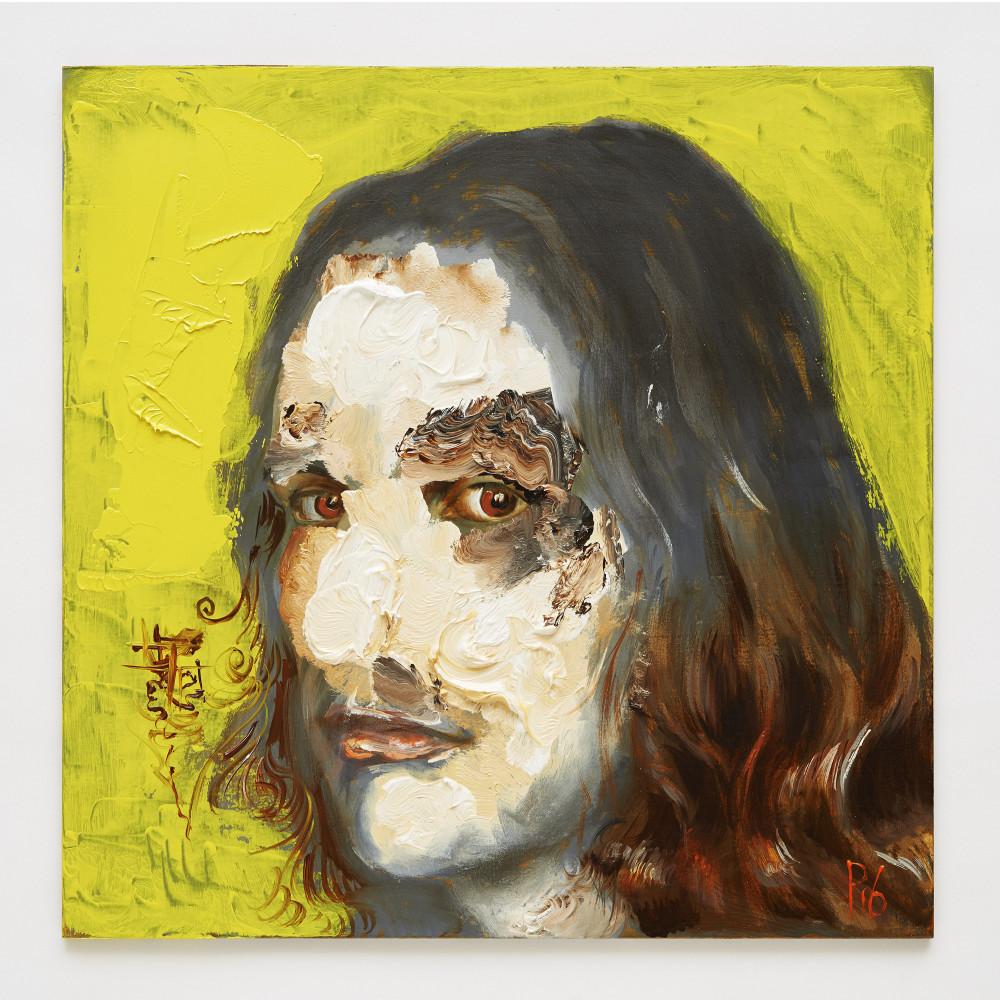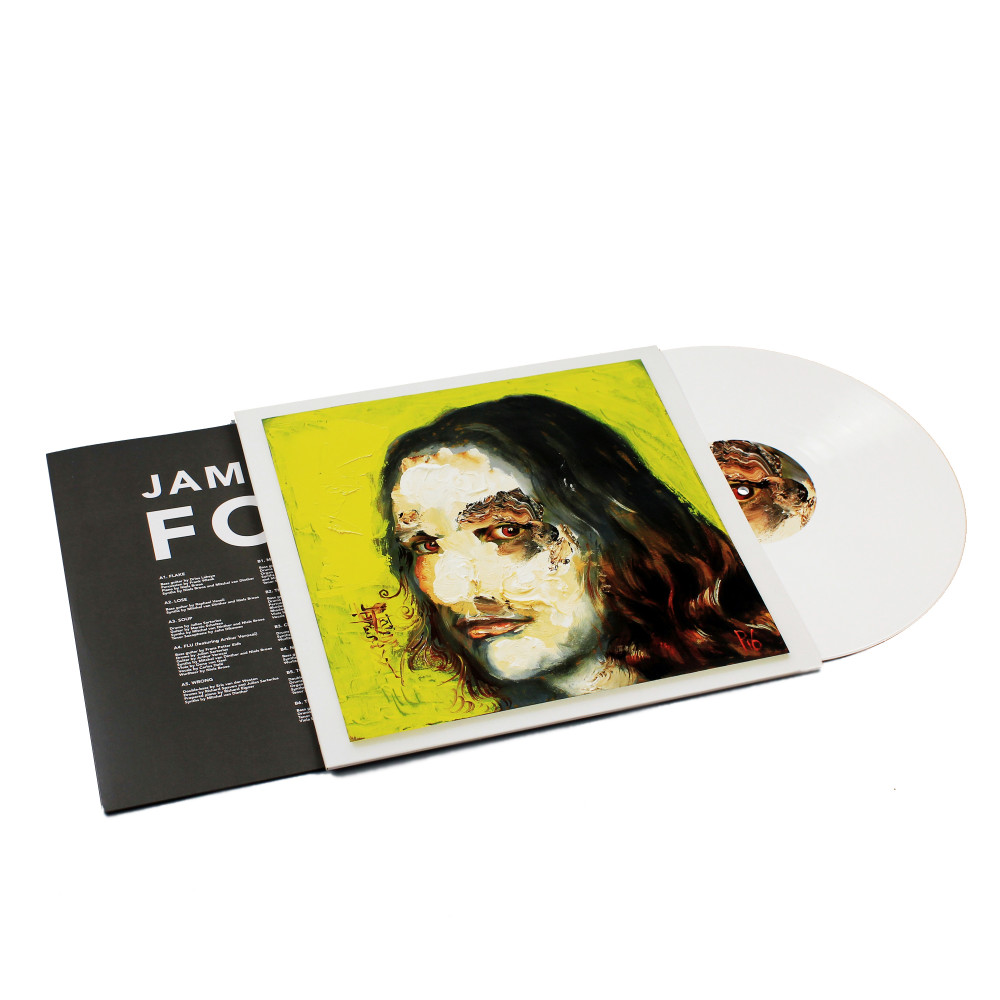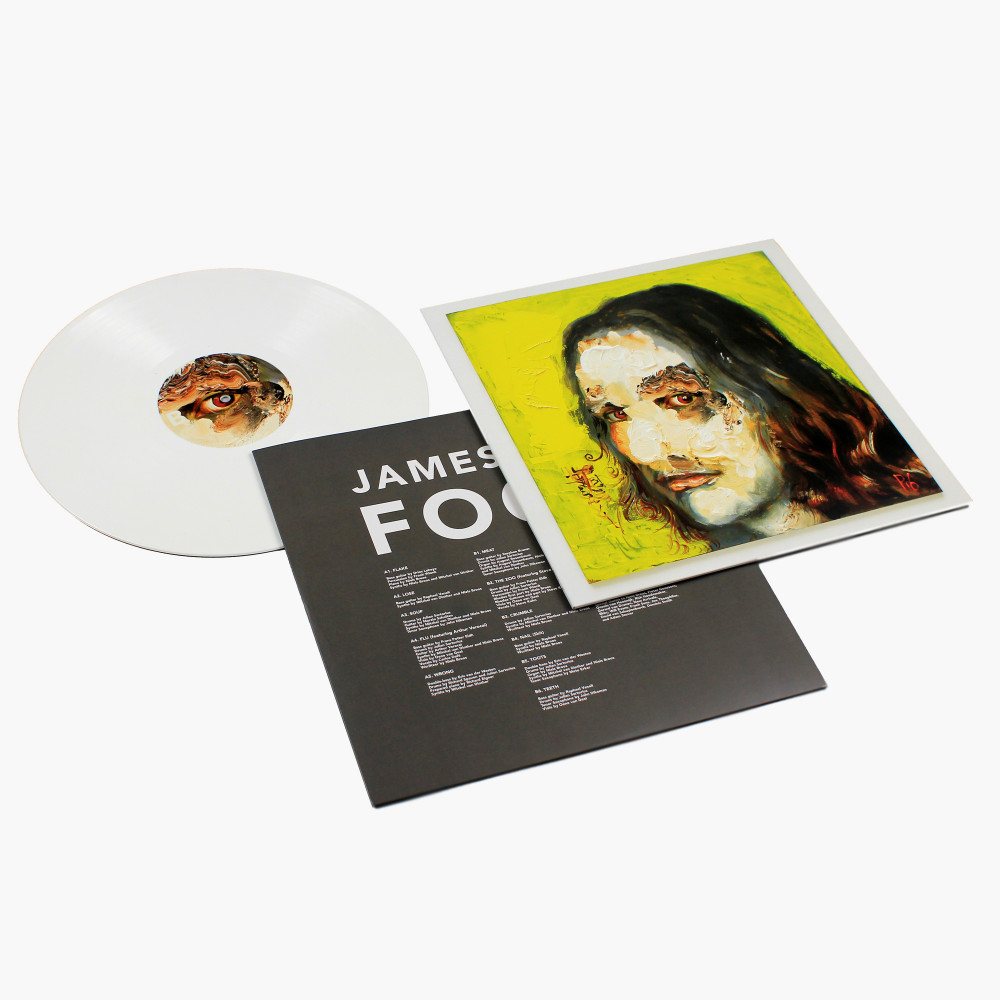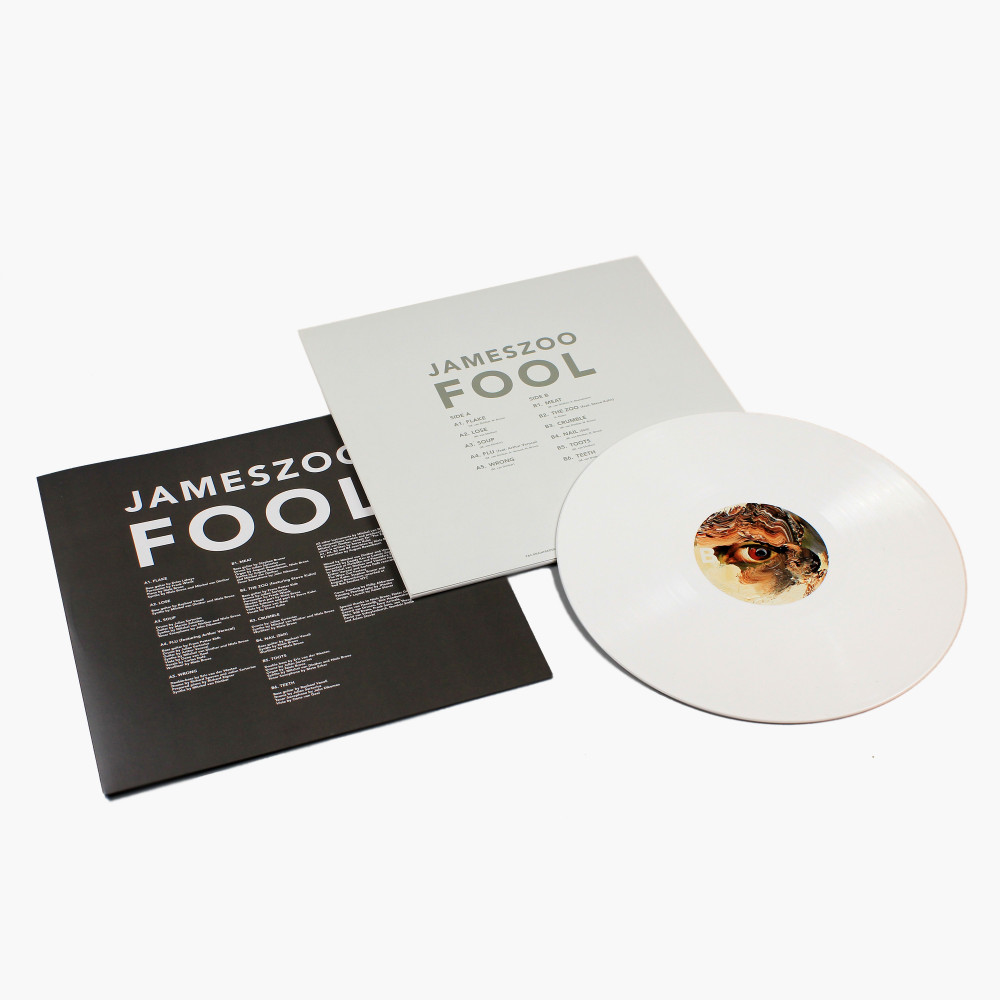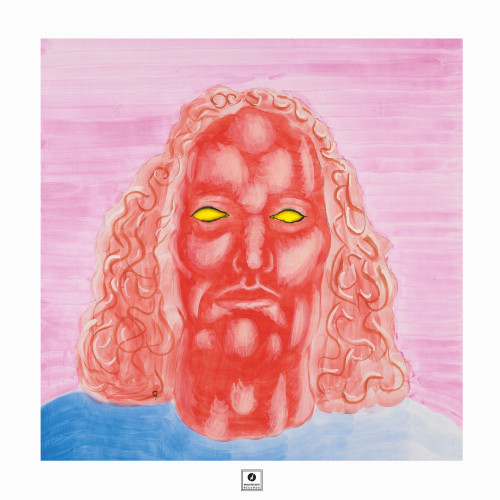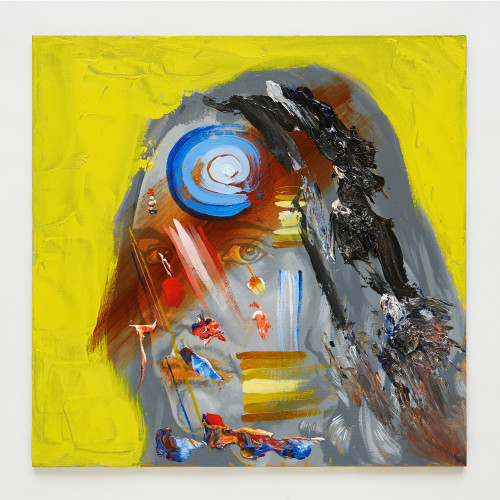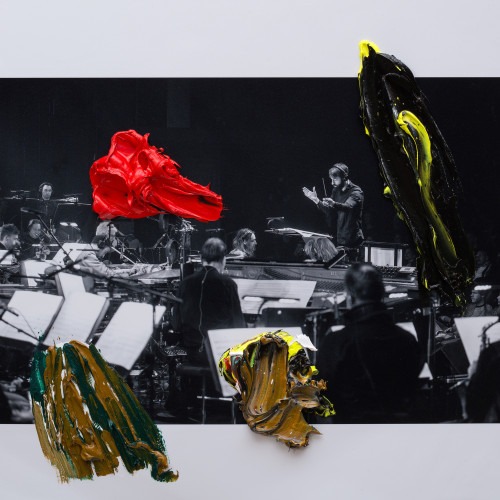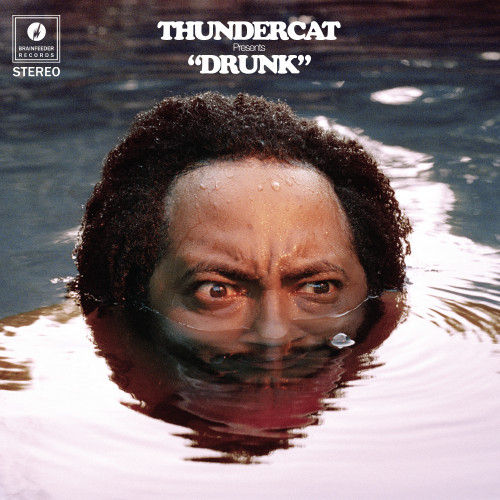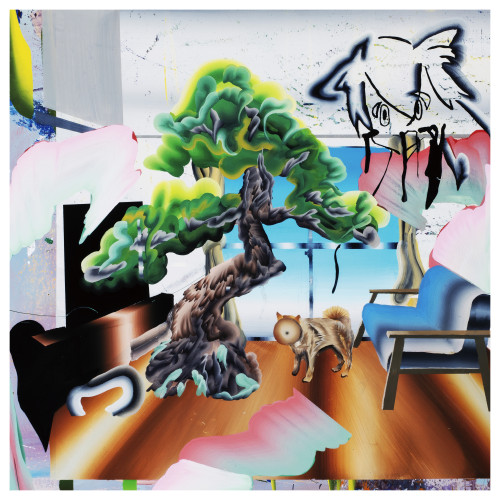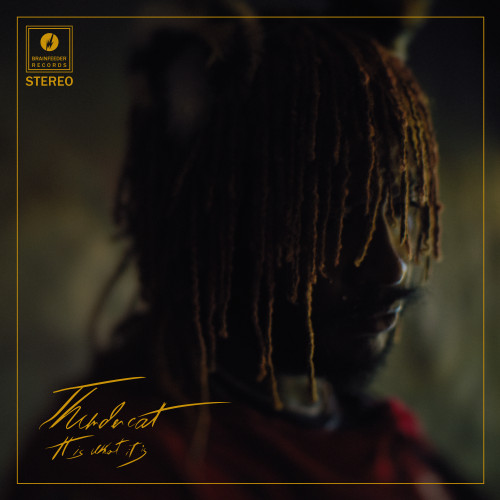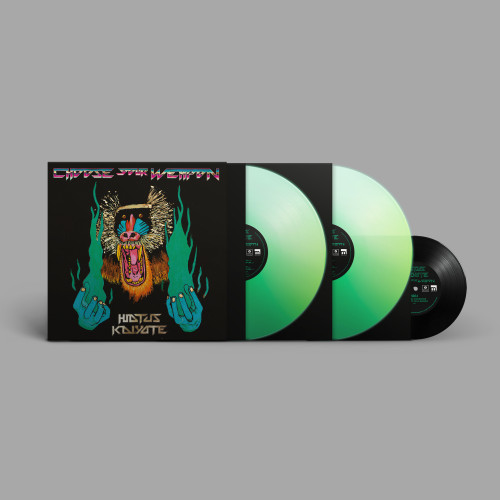Fool
by Jameszoo
— Released 13th May 2016 on Brainfeeder
The word ‘naive’ comes from the Latin ‘nativus’, meaning native, or natural. Today, to be naive is often seen as pejorative, a lack of experience or judgement, but in the art world the word retained some of its original meaning: a quality acquired through birth, a childlike innocence and wonder that produces spontaneous, unaffected art. For Mitchel Van Dinther, the Dutch producer known as Jameszoo, it is this quality that lies at the heart of his debut album, Fool, which he calls “n...
The word ‘naive’ comes from the Latin ‘nativus’, meaning native, or natural. Today, to be naive is often seen as pejorative, a lack of experience or judgement, but in the art world the word retained some of its original meaning: a quality acquired through birth, a childlike innocence and wonder that produces spontaneous, unaffected art. For Mitchel Van Dinther, the Dutch producer known as Jameszoo, it is this quality that lies at the heart of his debut album, Fool, which he calls “naive, computer jazz.”
Van Dinther emerged from the small town of Den Bosch in the southern Netherlands in the late 2000s. First as a DJ – with wide-ranging crates of avant-garde jazz, prog and kraut rock, electronic experiments, and beat oddities – and then as a producer capable of impressive sonic and rhythmic incongruities. This spring, Van Dinther joins Brainfeeder with an album that fits right into the label’s expanding take on the modern evolution of jazz music.
Fool began life as just a simple debut album, but soon grew into something more audacious. The primary inspiration behind the album was human limitation and our struggles to achieve, which, while depressing on the surface, provided Van Dinther with the necessary burst of inspiration to create work that is both personal and relatable. As he explains, “Fool is a product of coming to terms with myself.” During the recording process Van Dinther became obsessed with classic albums by Steve Kuhn (1971’s Steve Kuhn), Arthur Verocai (1972’s Arthur Verocai), and Robert Wyatt (1974’s Rock Bottom). The melodies, compositions, and idiosyncrasies of these works made the young Dutch producer reconsider his approach, moving him away from the colourful, electronic productions he was known for. “Whereas before electronic music was the foundation of my composing, now it is nothing more than an instrument within the range of many.”
Not only did Van Dinther take inspiration from these works, he eventually contacted the artists he’d been studying and convinced Kuhn and Verocai to lend their inimitable touch to the recordings. Tapping into jazz’s tradition of playing standards and covers, ‘The Zoo’ re-imagines Kuhn’s playful ‘Pearlie’s Swine’ with Rhodes and vocals that the man himself recorded with Van Dinther in New York City. The session with Verocai took place in The Netherlands, an hour-long jam between the Brazilian composer, Van Dinther, and singer Carlos Dafé, who had come along for the ride, taking turns on various instruments. After Van Dinther brought the musicians back to their hotel, he found himself floored by a flu virus that he had been ignoring for a week which eventually gave its name to the track.
With Fool, Van Dinther has created an album that doesn’t follow any direct rules. An album composed and arranged “on purpose” that still retains a wonderful naive quality. “It bothered me at first to not have the same background as most of the musicians I speak highly of, but I realise now it has its own value, it can be interesting.”
Across its 11 tracks, Fool plays out Van Dinther’s journey to find a musical voice he can be proud of and which can also inspire others. Alongside Verocai, Dafé, and Kuhn, the album features a stellar cast of classical and jazz musicians including pianist Niels Broos, drummers Julian Sartorius and Richard Spaven, bass guitarists Raphael Vanoli and Stephen Bruner (aka Thundercat), and saxophonist John Dikeman. All of these different contributions and approaches are weaved together into a whole by Van Dinther, armed with electronics and naivety. At times coherent, at times seemingly haphazard, the album is always joyful. “I tried to create something that is both tradition and me fooling around,” he explains. “There is something to be said for both sides of the spectrum. If we always remain in tradition there will be no evolution.”
Fool
by Jameszoo
— Released 13th May 2016 on Brainfeeder
Physical |
|---|
|
LP (BF059)
Heavyweight 180g white vinyl LP in a printed inner jacket housed in a 3mm spined sleeve. Artwork by Dutch artist Philip Akkerman - http://philipakkerman.com/ |
| CD (BFCD059) |
Bundles |
||
|---|---|---|
|
Physical |
Digital |
||
|---|---|---|---|
|
LP (BF059)
Heavyweight 180g white vinyl LP in a printed inner jacket housed in a 3mm spined sleeve. Artwork by Dutch artist Philip Akkerman - http://philipakkerman.com/ |
MP3 (BFDNL059) | ||
| CD (BFCD059) | 16-bit WAV (BFDNL059W) | ||
Tracklist
- CD
- LP
- MP3
- 16-bit WAV
-
1
Flake
-
2
Lose
-
3
Soup
-
4
Flu (featuring Arthur Verocai)
-
5
Wrong
-
6
Meat
-
7
The Zoo (featuring Steve Kuhn)
-
8
Crumble
-
9
Nail (Skit)
-
10
Toots
-
11
Teeth
-
Play All (11)
-
1
Flake
-
2
Lose
-
3
Soup
-
4
Flu (featuring Arthur Verocai)
-
5
Wrong
-
6
Meat
-
7
The Zoo (featuring Steve Kuhn)
-
8
Crumble
-
9
Nail (Skit)
-
10
Toots
-
11
Teeth
-
Play All (11)
The word ‘naive’ comes from the Latin ‘nativus’, meaning native, or natural. Today, to be naive is often seen as pejorative, a lack of experience or judgement, but in the art world the word retained some of its original meaning: a quality acquired through birth, a childlike innocence and wonder that produces spontaneous, unaffected art. For Mitchel Van Dinther, the Dutch producer known as Jameszoo, it is this quality that lies at the heart of his debut album, Fool, which he calls “n...
The word ‘naive’ comes from the Latin ‘nativus’, meaning native, or natural. Today, to be naive is often seen as pejorative, a lack of experience or judgement, but in the art world the word retained some of its original meaning: a quality acquired through birth, a childlike innocence and wonder that produces spontaneous, unaffected art. For Mitchel Van Dinther, the Dutch producer known as Jameszoo, it is this quality that lies at the heart of his debut album, Fool, which he calls “naive, computer jazz.”
Van Dinther emerged from the small town of Den Bosch in the southern Netherlands in the late 2000s. First as a DJ – with wide-ranging crates of avant-garde jazz, prog and kraut rock, electronic experiments, and beat oddities – and then as a producer capable of impressive sonic and rhythmic incongruities. This spring, Van Dinther joins Brainfeeder with an album that fits right into the label’s expanding take on the modern evolution of jazz music.
Fool began life as just a simple debut album, but soon grew into something more audacious. The primary inspiration behind the album was human limitation and our struggles to achieve, which, while depressing on the surface, provided Van Dinther with the necessary burst of inspiration to create work that is both personal and relatable. As he explains, “Fool is a product of coming to terms with myself.” During the recording process Van Dinther became obsessed with classic albums by Steve Kuhn (1971’s Steve Kuhn), Arthur Verocai (1972’s Arthur Verocai), and Robert Wyatt (1974’s Rock Bottom). The melodies, compositions, and idiosyncrasies of these works made the young Dutch producer reconsider his approach, moving him away from the colourful, electronic productions he was known for. “Whereas before electronic music was the foundation of my composing, now it is nothing more than an instrument within the range of many.”
Not only did Van Dinther take inspiration from these works, he eventually contacted the artists he’d been studying and convinced Kuhn and Verocai to lend their inimitable touch to the recordings. Tapping into jazz’s tradition of playing standards and covers, ‘The Zoo’ re-imagines Kuhn’s playful ‘Pearlie’s Swine’ with Rhodes and vocals that the man himself recorded with Van Dinther in New York City. The session with Verocai took place in The Netherlands, an hour-long jam between the Brazilian composer, Van Dinther, and singer Carlos Dafé, who had come along for the ride, taking turns on various instruments. After Van Dinther brought the musicians back to their hotel, he found himself floored by a flu virus that he had been ignoring for a week which eventually gave its name to the track.
With Fool, Van Dinther has created an album that doesn’t follow any direct rules. An album composed and arranged “on purpose” that still retains a wonderful naive quality. “It bothered me at first to not have the same background as most of the musicians I speak highly of, but I realise now it has its own value, it can be interesting.”
Across its 11 tracks, Fool plays out Van Dinther’s journey to find a musical voice he can be proud of and which can also inspire others. Alongside Verocai, Dafé, and Kuhn, the album features a stellar cast of classical and jazz musicians including pianist Niels Broos, drummers Julian Sartorius and Richard Spaven, bass guitarists Raphael Vanoli and Stephen Bruner (aka Thundercat), and saxophonist John Dikeman. All of these different contributions and approaches are weaved together into a whole by Van Dinther, armed with electronics and naivety. At times coherent, at times seemingly haphazard, the album is always joyful. “I tried to create something that is both tradition and me fooling around,” he explains. “There is something to be said for both sides of the spectrum. If we always remain in tradition there will be no evolution.”

